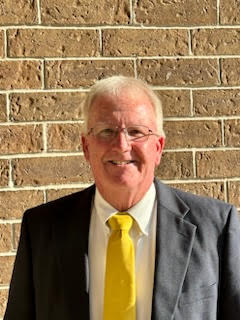Breaking down the city’s alcohol ordinance
Published 8:00 am Monday, January 10, 2011
After two months of work and debate, the proposed alcohol ordinance for the City of Cullman is complete. Pending final approval on Jan. 11, the ordinance should go into effect this month.
The brunt of the regulations were based on the ordinance already in effect in Athens, while fees and distance limitations were set in consideration of surrounding areas.
Alcohol sales will begin at 8 a.m. and end at 11 p.m. Monday-Thursday. On Friday and Saturday nights, sales will be allowed until midnight.
Restaurants
Restaurants that serve alcohol in Cullman will have to adhere to all existing city building and health codes, as well as a few new ones under the alcohol ordinance.
The restaurant — regardless of size — must have a fully equipped and operational kitchen, and must be fully staffed during the same hours as any other part of the establishment. The kitchen must also be open to prepare and serve all food items shown on its menu during normal and reasonable business hours. City officials said these requirements were added in an effort to discourage any less than legitimate restaurants from opening for the express purpose of serving alcohol.
At least 60 percent of the gross receipts from any restaurant must come from food sales in any given 90 day period. To ensure that limit is maintained, the licensee must maintain a daily cash register summary differentiating the receipts for the sale of food and alcoholic beverages, and those records will be available for inspection by the city’s Alcohol Review Committee (ARC).
Zoning
The zoning regulations for businesses wanting to sell alcohol will differ in the city, depending on where the business is located.
In downtown areas zoned Central Business District (CBD), a limit of 50 feet will be required between any business serving or selling alcohol and nearby churches, schools or daycares. In highway Business District 1, 2 and 3 zones, a limit of 250 feet is required. Though officials briefly considered measuring from the main entrance of an establishment, the distance measurements will be made from the exterior walls of the business.
Zoning guidelines for package stores are also set, with a 1,500 feet limit required between package stores; and at least 1,000 feet limit from a church, daycare or school.
In an effort to limit the proliferation of lounges (i.e. dance clubs, bars) the city held a first reading to create a new zone called the Entertainment District (E-1), though no E-1 zones currently exist.
Businesses selling alcohol for off-premises consumption will be limited to B-2 zones (mostly around highways) and E-1 Entertainment Districts (currently no zones under this designation exist).
Off-premises sales will not be allowed in CBD downtown zones.
Advertising, signage
Once alcohol is available at local stores and restaurants, business owners will have to adhere to a few changes in advertising and signage regulations.
No signs advertising table wine shall be displayed outside any retail place of business. All advertising must adhere to the Alabama Alcoholic Beverage Control Board regulations, and no advertising of table wine on billboards in “dry” counties will be allowed.
No signs containing alcohol brands for on-premises or off-premises consumption (electronic, painted, or otherwise) will be allowed containing the English name, brand name, or phonetic spelling or misspelling of an English name for any alcoholic beverage.
Businesses must also meet all existing city signage regulations.
License fees
All liquor licensees will be required to submit a 12 percent liquor tax based on gross liquor sales.
To apply for an alcohol license, a $200 filing fee must be paid to the city, and applicants will be required to complete the Alabama Responsible Vendor program, which provides training on alcohol laws. Alcohol license fees will vary depending on the type of business. Fees include: $1,500 for a restaurant license, $3,000 for a (lounge class II) package store license, $5,000 for a lounge class I (i.e. dance club, bar) license, $1,800 for a club license (i.e. VFW, Elks Lodge), $1,000 for a liquor wholesale license, $275 for a wholesale license, $500 for a warehouse license, $1,800 for a brewpub (beer and restaurant on premises) license, $200 for a seven days or less special event license, $250 for an 8-30 day special event license, and $350 for a 30 days or more special event license.
A $10,000 tax bond will be required of any business receiving a license to cover any potential unpaid fees, and businesses must have at least $300,000 in liquor liability insurance from a reputable insurance provider to cover any damages.
* Trent Moore can be reached by e-mail at trentm@cullmantimes.com, or by telephone at 734-2131, ext. 220.





